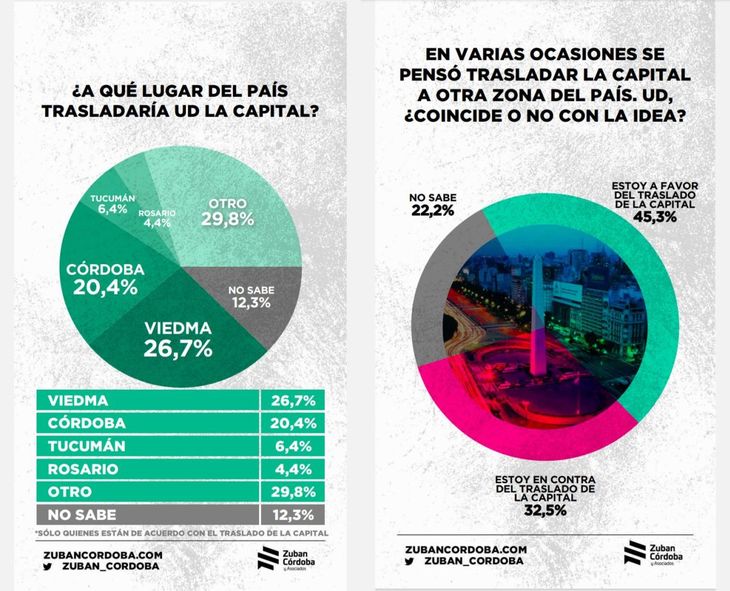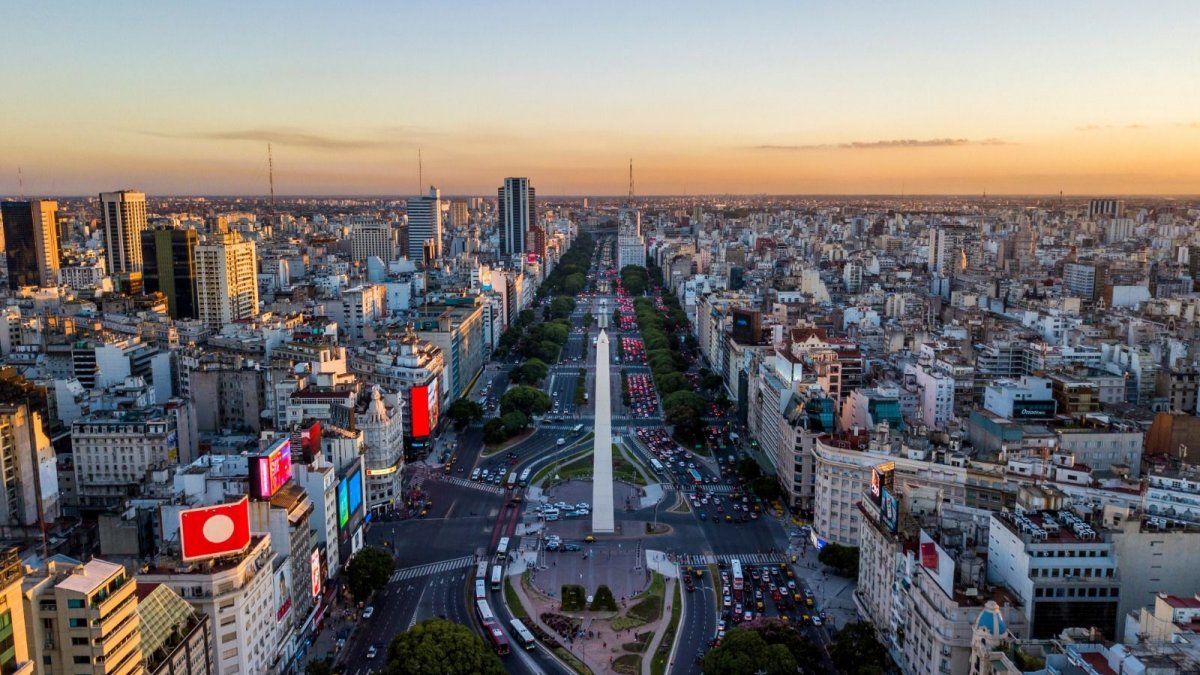The texts are the work of the legislator from Chubut Edith Terenzifrom the Radical Civic Union (UCR), and from Entre Ríos Edgardo Kueidercoming from wayward Peronism. Both integrate United Provincesa brand new bloc articulated by governors from various backgrounds with the aim of gaining mass in the Upper House and intervening according to their interests among the main forces.
Viedma: the old Patagonian desire of Raúl Alfonsín
Reviving the old proposal of Raul Alfonsinthe chubutense bill Edith Terenzi has the endorsement of its governor, Ignacio “Nacho” Torres (PRO)and contemplates the transfer of the Federal Capital to the urban centers erected and to be erected in the area of the current cities of Carmen de Patagones, Viedma and Guardia Miter. In dialogue with Scopethe author of the text pointed out that “the purposes proposed by Alfonsín for the move from the Capital are still in force” and that “It is an unfinished stage, which has remained in the memory of all Patagonians since the 80s.”
“The project has the coincidences and similarities of the one approved in 1987: a sparsely populated Patagonia, with enormous energy reserves to protect; an important Atlantic coastline; the proximity to the Islands and Antarctica, which are highly valued territories; and an underwater platform so rich, so extensive and so difficult to monitor. There are a lot of geopolitical condiments that have the weight for moving the capital and decentralizing political power in the country,” the senator explained to this medium.
Federal Capital Transfer Bill .pdf
In this regard, he said that the axis is to plan a strategic development that looks inward and that specifically points to Patagonia, since the region has a third of the country’s territory, “which is the least developed and also the least populated.” He also pointed out that the reasons for the move are “demographic, geopolitical, balance of power, internal conquest of a new territory, national security and decentralization: all concepts that Patagonia still has pending.”
Terenzi considered that although it seems that it is never appropriate to raise issues of this nature, such pharaonic and future-term projects, “at some point we Argentines have to discuss, along with the urgent and the everyday, the future matrix of the country we dream of.” . “The important thing is to start discussing it. This is a project that may take longer; it takes between 10 and 12 years to complete, therefore it also involves different mandates. That’s also good: it’s about starting to discuss it from now on, so that we can plan it on an important timeline,” he concluded.
Senators Nacho Torres.jpg
The governor of Chubut, Ignacio Torres, together with senators Edgardo Kueider (Entre Ríos), Mónica Silva (Río Negro), Edith Terenzi (Chubut) and Carlos “Camau” Espínola (Corrientes).
At the same time, he highlighted the role that the Patagonian provinces have had so far in the libertarian administration and recalled the disagreements that the governors had with the Casa Rosada at the beginning of the year, a sequence that led to the formation of a league of six southern leaders. “It is a propitious moment, in which Patagonians are united and pursue common objectives, which have to do with the development of the region,” hill.
Paraná, the alternative proposal
Almost in a mirror, the man from Entre Ríos Edgardo Kueider presented a bill in which proposes moving the Federal Capital to the city of Paraná. In its foundations, it is highlighted that the initiative seeks “promote federalism and deconcentrate the political and economic influence of Buenos Aires”.
Kueider stated that the “excessive concentration of population in the Buenos Aires Metropolitan Area has generated a series of problems such as the overload of public services, the increase in social inequality and vulnerability to crises.” “The transfer of the capital and a large part of the government and administrative activities would reduce the demographic pressure on the AMBA, allowing a better distribution of the population throughout the national territory,” he pointed out.
The document detailed that the process would be in stages and would begin with the Presidency of the Nation and the main public organizations. It would have a period of three years from the promulgation of the law and, during that time, Federal and local jurisdictions would coexist in Paraná, maintaining provincial powers on issues not related to the change of headquarters.
Its author noted that “many countries have undertaken processes of decentralization and capital relocation with very good results.” Among the examples, he mentioned the transfer of the capital of Rio de Janeiro to Brasiliawhich “managed to attract investment and population to a previously underdeveloped region.”
Also the move from the capital of Almaty to Astana in Kazakhstan. “a more recent and radical process.” “The new capital was designed from scratch to become a modern financial and political center. “This project has been successful in terms of attracting foreign investment and modernizing the country’s image,” he explained.
“It is a proposal that deserves serious consideration and debate. It is a historic opportunity to build a more just, equitable and federal country, where all regions have the same opportunities for development,” concluded Kueider on the project.
Both proposals have already been presented to the Senate, so they will now be referred to committees, where their future will begin to be debated. Although there is still no call, the block is optimistic. “We are each doing our part to do our part, but the objective we have is similar.”r”, noted its authors.
Support for the transfer of the Federal Capital
The idea of relocating the Federal Capital would not be viewed with bad eyes by almost half of Argentines. According to a survey by the consulting firm Zuban Córdoba carried out on a universe of 1,900 cases, 45.3% agree with the transfer, while, on the contrary, 32.5% oppose it. The remaining 22.5% have no opinion on the matter.
Zubán Córdoba.jpg

According to data collected by Zuban Córdoba, almost half of Argentines agree with moving the Federal Capital.
The data collected by the consulting firm indicates that Viedma is the city that leads the preferences, with 26.7%. They follow her: Córdoba, 20.4%; Tucumán, 6.4%; and Rosario, 4.4%. At the same time, among those who chose other options, La Pampa heads the list with 23.7%, escorted by Santiago del Estero (12.5%); Buenos Aires (5.2%); and Bahía Blanca (4.5%). 5.5% also proposed creating a new city.
Source: Ambito
David William is a talented author who has made a name for himself in the world of writing. He is a professional author who writes on a wide range of topics, from general interest to opinion news. David is currently working as a writer at 24 hours worlds where he brings his unique perspective and in-depth research to his articles, making them both informative and engaging.




